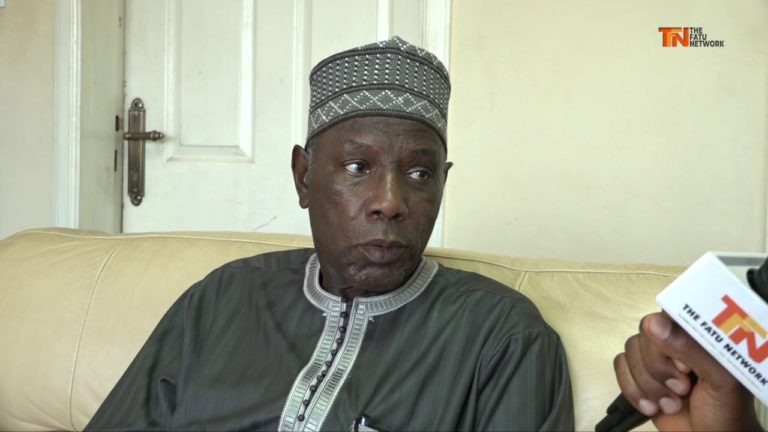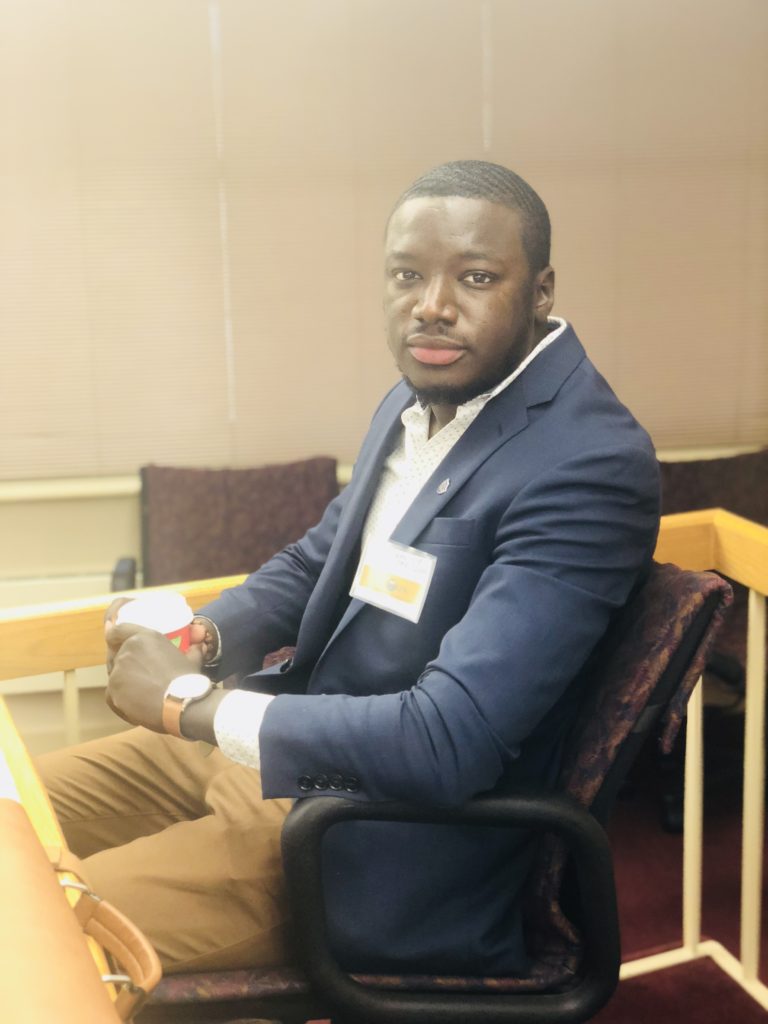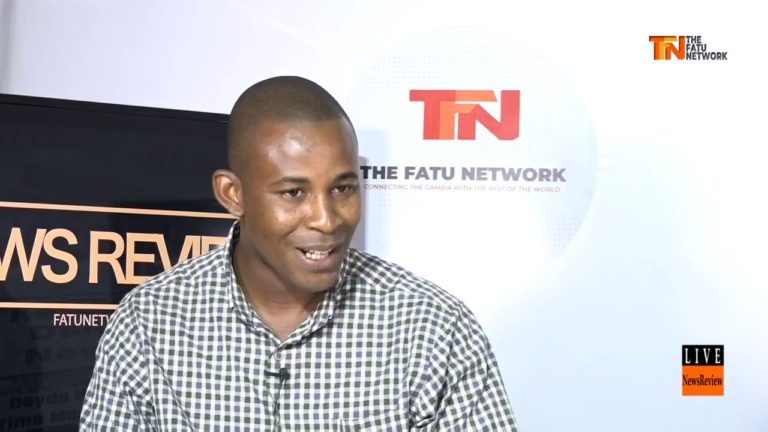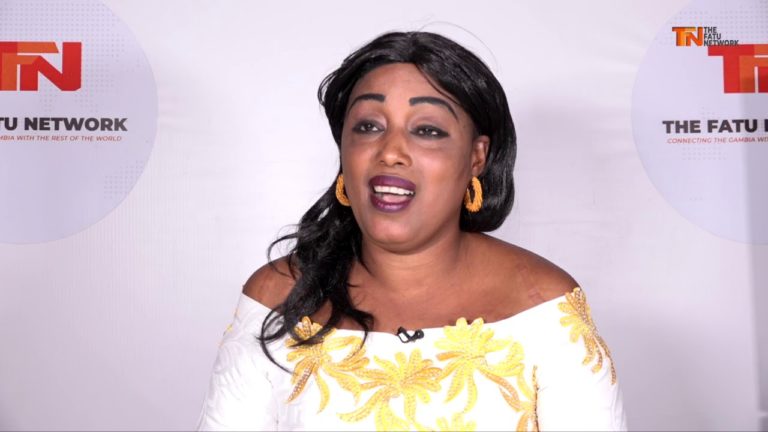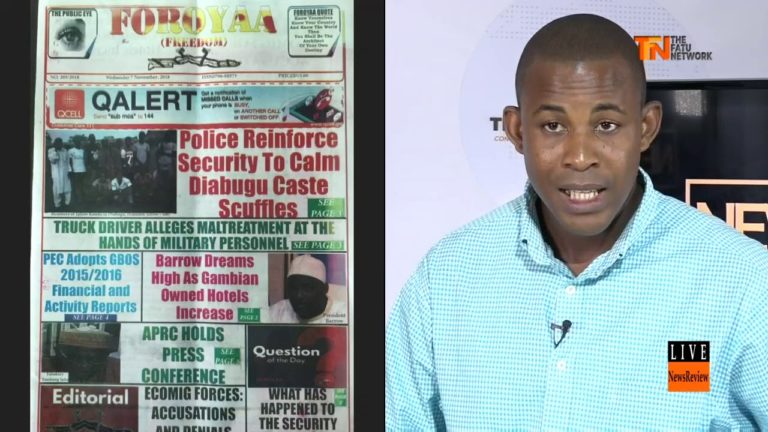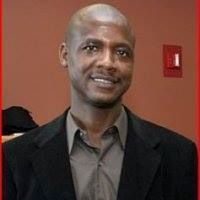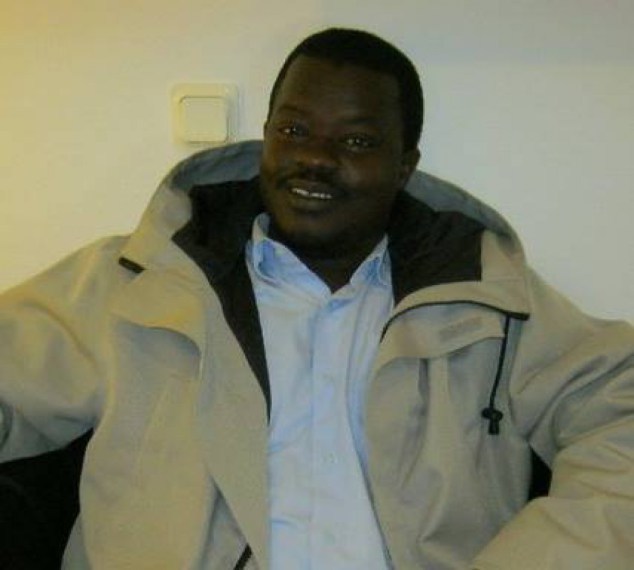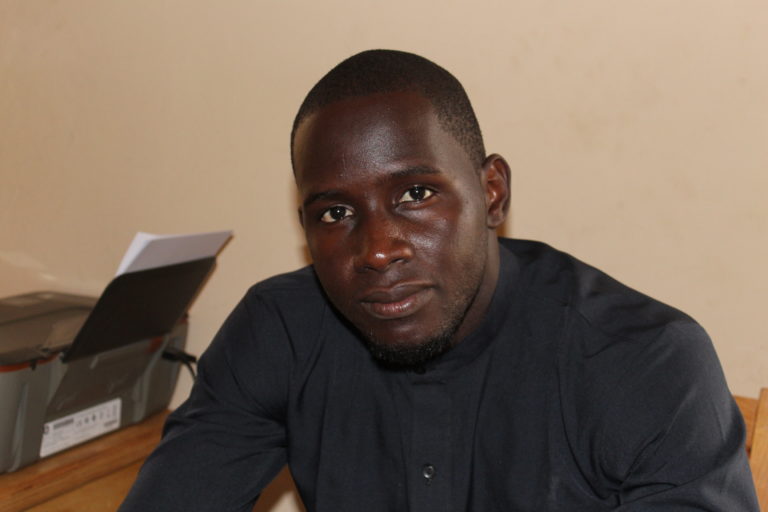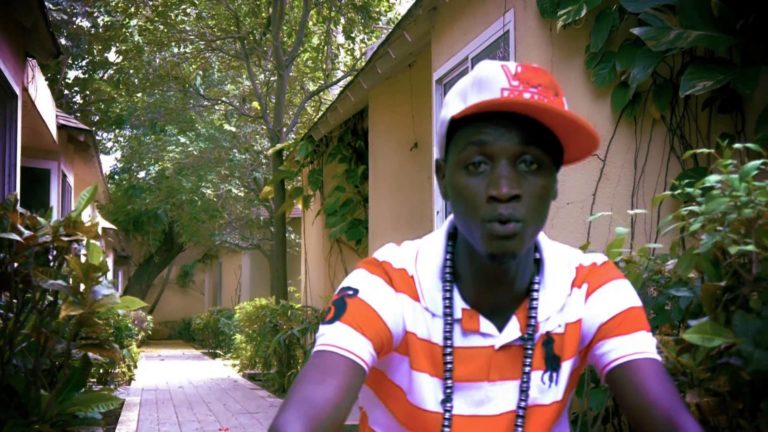President Barrow’s Fictive Commissions: Testing the Limits of Human Justice
By Saul Njie
What happens when a State must prosecute itself? What is one to do when the State – not some foreign forces – are the tools of a certain crime? What are the limits of human justice? I keep thinking about these questions over and over again and no satisfying answers. In 2017, right after the impasse, I argued in one of my pieces that the gravity of Jammeh’s evils are such that, we cannot move forward without accounting for them, in other words, bringing Jammeh and his co-conspirators to book. I further argued that, we cannot deconstruct and understand this evil until we accept that this evil is ours (Gambians) and forego the collective denial.
To boot, a country, especially after 22 years of looting, corruption and human rights abuses, has to come to a reckoning with its past; that, we are unto tomorrow, but not without our scars, not without our history, not without our stories, not without our death, not without the sins of yesterday – a la Jammeh’s Gambia. Only and only when we lay these to bare – can we fully understand how much evil humans are capable of, contextually, ordinary Gambians.
I still continue to argue that we must fully deal with the gravity, breadth and width of Jammeh’s crimes, absent this, we would be doing a big injustice to the memory of The Gambia. At first blush, some of these Commissions are most certainly necessary, to wit, the Constitutional Review Commission and arguably the Truth and Reconciliation Commission. Notwithstanding, it seems like every incident, nowadays, calls for a Commission except for the FABB Scandal and the myriad of thievery going on in the Barrow administration. In Faraba, agents of State, with the weight and muscle of the State behind them, killed Gambians in broad daylight; instead of the State bringing the alleged killers to book, they set up a Commission to obscure the amorality of the state.
The Janneh Commision has divulged into a soap opera, a money milking scheme and, at this point, we have forgotten the main reason the Commission was setup up in the first place. One would be tempted to ask: couldn’t the Justice Department [Ministry of Justice] have been able to conduct these investigations? Given the booming “Commissions” industry in the Barrow era, where every perceived crime is delegated to some Commission, one could also ask: what is the point of having a Ministry of Justice if it cannot deal and tackle the big cases? For a poor country like ours, why are we spending all these resources into Commissions?
Barrow is banking on our collective amnesia, the collective enterprise that is national forgetting, knowing well that our quest for justice, is for the most part, stunted by our want of stamina. I think this Barrow tactic has withstood the test time and, I think, it is going to do the trick. The Commissions, in my view, are to push these problems to the margins, to make them into niche issues, relying on our stamina to pursue justice and our collective amnesia.
In the end, they would become akin to Judge Judy mock hearings and testimonials, whereby the masses would forget what the whole crime was, to begin with. Sooner or later, the Commissions will fizzle out and we would be left with the tab and I am sure, in the aggregate, the benefits would not justify the costs.
So, what happens when a State must prosecute itself? What is one to do when the State – not some foreign force – are the tools of a certain crime? What are the limits of human justice? To that, I say, absent for political persecution — the State, in most cases, would not bring itself to justice, because, it is incapable of prosecuting itself — for it unearths the amorality of the State. These Commissions serve to obscure the glaring reality — that the Gambian State is amoral. So is Adama Barrow.
Macky Sall’s Scorecard Impresses Many Senegalese
President Macky Sall of Senegal might not have been in power for long but his performance after six years has been quite impressive. Thanks to his many achievements, Senegal now has been positioned as one of the largest economies in the region. Below is a list of 20 key achievements of the hard-working head of state.
Economic surge
Senegal is among the most stable and promising countries in West Africa. Over the past five years, Senegal experienced its strongest period of sustained growth, beginning with 4.5 percent growth in 2011 and ending with 6.6 percent growth in 2016.
CouvertureMaladieUniverselle (CMU)
Provides free access to health services to children under five. As many as 2.5 million Senegalese children will benefit from this measure that aims at accelerating reduction in child mortality by 2015, particularly for the poorest.
Dakar water and electricity crises
He eased the issue greatly by investing heavily and smartly in the sectors. The KeurMomarSarr KMS 3 water plant number three and the seawater desalination plant in Mamelles will provide a sustainable solution to the problem of Dakar’s drinking water supply.
Renewal Energy Success
Macky Sall has placed renewable energy high on his list of national goals, and four solar plants have come online in the last two years with the percentage of citizens using clean energy in rising at an astounding pace from about 10% to over 21% in less than two years.
Women Rights Champion
To strengthen the power of Senegalese women, he modified the code of nationality, for women to be given the same rights as men, in order for them to transfer their nationality to their spouses and children).
Affordable Social Housing Champion
Two years after being President, he spearheaded a new law mandating across-the-board rent reductions and has continues to support low income housing projects. 40,000 social houses will be in Diamniadio, which will facilitate access to the property real estate to general population.
PUDC
Provides rural electrification and water supply in the most remote of areas of Senegal. From 2012 to 2016, 140 boreholes per year has been drilled; which is unprecedented. This program was inspired by the hardships he saw first-hand when he toured the depths of the country. That promise has been mostly delivered.
PRODAC
Supports young people in particular in the agriculture field. The program will create more than 300,000 jobs in the next five years. The aquaculture, poultry and agricultural activities and the value chain of processing and marketing will develop and allow for the creation of real economic centers.
A President for all
He is the most traveled President within Senegal. Went and goes to the most remote places and focuses on rural areas with his many programs such as, PUDC and PRODAC.
The new city, Diamniadio
Aim is to decentralize Dakar by building the most modern urban center in Senegal. The biggest project of the Plan Senegal Emergent (PSE), which aims to thrust Senegal onto the road to development by 2035. All of Senegal’s Presidents since independence aspired to build a new city but never did. Macky Sall is the one who did it.
Train Express Regional (TER)
Under construction light rail that will ultimately connect Dakar with the Blaise Diagne International Airport. To be running early 2019).
IlaTouba
A newly built highway leading to Touba, one of the most biggest cities in Senegal, that will allow for the building of an interconnected network on the whole territory to create a dynamics of economic business, economic potentialities and facilitating the access of the populations to basic social services. Also opens region to the sub-regional market.
Supported a Diaspora National Assembly Representation
Senegalese in the diaspora are now represented.
Road infrastructure
Built most roads in six year than any President. 217 kilometers highways, 2000 km from roads, 1000 km of rural tracks and 12 bridges.
Created the second Port in Senegal (SENEGAL MINERGY PORT(SMP).
A Senegalese special purpose vehicle set up to undertake the design, building and operation of a multi-commodity dry and liquid bulk port in Bargny-Sendou.
Creation of Institut National du Pétrole et du Gaz (INPG)
He launched in October 2018. The goal of INPG is to shape and train future indigenoeus leaders in the petroleum industry, while creating a technical workforce that can compete on a global scale. INPG will develop the potential of Senegal’s youth, which has been left out of scientific matters for too long. They will tackle the most challenging issues of the petroleum industry. This in all line with the President’s passion of harnessing local skills and to make Senegal an energy hub. Senegal starts oil and gas production in 2021 / 2022.
First Cyber-Security School, ENVR
Launched in November 2018, its goal is to strengthen West Africa’s defenses against computer hackers and use of the internet for terror funding and propaganda. It will provide training in combating cyber-crime for the security services, judiciary and private enterprises. Backed by France, it will have a “regional vocational role” in helping other countries in West Africa. ENVR was proposed at the 2017 security conference in Senegal and it will initially be based in Dakar at the National School of Administration (ENA) before moving to Diamnadio.
National Air carrier
He revived Air Senegal in 2018 and the carrier has since taken off.
Students First
Inauguration of six new pavilions at the Université Sheikh Anta Diop of Dakar. The capacity of the UCAD thus passes to 10,876 beds, which is twice what was realized since independence over 50 years ago.
Youth Olympics 2022
Senegal is the first African country to host an Olympic event.
AU Failing to Tackle Pervasive Slavery in Mauritania: US Revoked Mauritania’s Eligibility under AGOA for Failure to End Slavery?
By Alagi Yorro Jallow
The African Union and African leaders are not ending the decades of shame and disgrace in Africa. Africa is entering a season of unprecedented growth and increase. Africa is in a season of African renaissance in technology, agriculture, industry and education.
Africa as a continent cannot continue depend on the United States of America, the European Union, China, IMF, the World Bank or Asia. Africa must write her own story. African Union must break the mental limitations and deliberately take steps towards progress, prosperity and freedom. Let the AU with great haste seize the moment and take possession for the emancipation of the continent Africa.
The African Union has worked towards achieving some of its objectives (on paper). It has, however, mainly been a platform for African leaders to rile at the imperialistic West for meddling in their affairs and driving an agenda that is not in the best interests of Africa. Do African leaders have the best interests of Africans at heart? African leaders meet at AU summits to give fiery speeches followed by spells of ‘doing-nothing-ism’ Simply put, the AU has the bark of a bulldog, and the bite of a poodle. This is because it’s yet to become independent – and ultimately, politically useless.
The African Union and African leaders are not ending the decades of shame and disgrace in Africa. Africa is entering a season of unprecedented growth and increase. Africa is in a season of African renaissance in technology, agriculture, industry and education.
President Donald Trump said the United States will revoke Mauritania’s preferred trade status in January because of its failure to make progress on human rights – namely, slavery. Mauritania will no longer be eligible for benefits under the African Growth and Opportunity Act (AGOA), which affects market access, investment, and reduced or eliminated tariffs on U.S. imports.
“I am providing notice of my intent to terminate the designation of the Islamic Republic of Mauritania (Mauritania) as a beneficiary sub-Saharan African country,” Trump said in a letter to U.S. legislators. He cited Mauritania’s failure to protect workers, as required under a key AGOA provision, as the reason.
Africa as a continent cannot continue depend on World Bank, IMF, China or the West. Africa must write her own story. African Union must break the mental limitations and deliberately take steps towards progress, prosperity and freedom.
Let the AU with great haste seize the moment and take possession for the emancipation of the continent Africa.
“Mauritania has made insufficient progress toward combating forced labor, specifically, the scourge of hereditary slavery,” Trump said. “Despite intensive engagement with the United States, the Government of Mauritania has failed to meet critical required benchmarks to address these issues to date.” Mauritania will be removed as an AGOA partner on January 1, 2019, although the U.S. government will continue to monitor its progress.
This year in July, Mauritania hosted an African Union summit. But at the meeting of the African Commission on Human and People’s Rights in Nouakchott, the issue of slavery was not raised in public discussions. A communiqué issued by the commission also makes no mention of slavery at all. Will the African Union be prepared to take a public position on the issue, as it did when leaders strongly condemned reports of modern-day slavery in Libya last year?
International law is emphatically against slavery, having prohibited it at the 1926 Slavery Convention, which was detailed further by the 1956 Supplementary Convention on the Abolition of Slavery. Though Mauritania only acceded to these conventions in 1986, the prohibition of slavery is also a peremptory or absolute norm in international customary law. This means that the ban on slavery binds every country, without exception, regardless of which treaties they have acceded to. The African Union! Sigh… No bark, no bite. Powerless organization as far as protecting Africa’s interests goes. That leaves each country with the responsibility to protect its own interests. It all comes back to this: exemplary political leadership that will ensure rule of law, thriving of its own citizens as a priority, non-nonsense win-win contracts with rich countries; contracts that do not sell out Africa’s human and mineral resources just to enrich a few. With a protectionist and Africa-first approach, you will not have thousands of Africans fleeing their own plundered countries to search for better life in America, Europe and the Middle East.
One could say- but the numbers of those fleeing and getting sold is negligible compared to a rising African middle class (“fastest growing middle class in the world”) and the entire continent’s population. Let’s agree that knowing our history as Africans, just one slave sold is a total abomination. And that rising African middle-class floats on an economy that can go south in a second, primarily because of bad politics. Darn shame all African presidents watching your citizens take a chance on freedom even if it comes with the possibility of getting sold into slavery in the 21st Century.
The silent plunder of Africa’s resources that never ceases, with African leaders being enablers of the plunder through greed-driven contracts like (so-called MoU) of Hon. Hatmat Bah. The number of those who die and/or get tortured as indentured laborers or maids is huge in the Africa and in the Middle East. The shift towards the Sahel region and the growing brazenness of 21st century indentured labor into full-blown slavery with live auctions of human merchandise is only now being “discovered” by mainstream and social media. Biggest disappointment?
American labor leaders warned last year that conditions in Mauritania should disqualify the nation from participating in AGOA. Activists say Mauritania has seen renewed arrests of anti-slavery activists, in a nation where tougher anti-slavery measures were enacted in 2015 but the rate continues to be one of the highest in the world, according to the Global Slavery Index.
How the UDP’s ‘Denied Internal Wrangling’ Can Harm Us
There is a lot of speculation that there is an internal wrangling and power struggle in the United Democratic Party (UDP). Many people believe that the power struggle is centered on who should be the flag-bearer for the party in the upcoming elections.
It is believed – by many – that Pres. Adama Barrow has now changed his earlier stance that he would stay for only three years as a transitional president and then leave office for a free, fair and democratic elections to be conducted in which he will not contest. But, it seems that he now wishes to throw his hat in the ring.
This new stance has brought some disquiet to the United Democratic Party as folks see Barrow as a political threat to the longtime leader of the party, Lawyer OusainouDarboe. Though the party has repeatedly denied this power struggle, citizens believe that there is indeed some form of struggle as to who will be the flag-bearer come 2021.
Recently, it was revealed that His Excellency President Adama Barrow had started courting some of the UDP’s National Assembly Members by giving them envelopes containing ten thousand dalasis each. Some even say that that list also included Chairmen of Area Councils. This action was denounced by many political commentators as being an underhanded dealing to tip the balance in favour of Adama Barrow.
Of course, the denials from State House were swift and ferocious again. They claimed that these NAMs had requested some kind of help from the president which he was fulfilling. It was said that the National Assembly Members had spoken to the president about their difficulties in having enough fuel to visit their constituencies and that is what the money was for.
Be that as it may, it was frowned upon by almost all political commentators in the country. Recently, we have also observed the president having many engagements from youth groups, opinion leaders and Imams at the State House. This, it is said, is informed by the fact that the United Democratic Party will hold its congress in December. Thus the indication is that he is trying to garner support for his bid.
In the newspapers yesterday, it was reported that the United Democratic Party booted out at least five chairmen of the party because they were said to be in support of Barrow’s bid to be the UDP flag-bearer for the presidency. This was something that was denied from some quarters. The truth though is that there seems to be some form of struggle or the other. The saying that ‘there is no smoke without fire’comes to mind here.
Whatever the case, a head on power struggle between Barrow and Darboe will not be good for the country. For one, it may split the party into a Barrow Camp pitching against a Darboe Camp which cannot be good because it will make the political field more unstable, more unpredictable and more chaotic.
In my opinion, what this points to is perhaps the fact that the party structures were not as robust as they should. If the structures were as strong as they should, it would take care of this problem easily and outsiders would not even have heard of it. Provision should be made – very clearly – as to how one becomes the party’s flag-bearer. If these rules are then followed, it will ensure that the struggle never gets ugly or resorting to underhanded dealings. This is not good for the country.
When a sitting president has to focus more of his time on trying to win people over for his campaign, it has the potential of distracting him from the service of the nation for which he was elected. There will be a conflict of interest and we all know that many people – if not most – will be tempted to take the personal interest over the national one.
The United Democratic Party (UDP) and indeed all other parties must work on their democratic structures to ensure that they are truly democratic even if they are in the opposition. A party that is not democratic while in the opposition cannot be expected to be democratic when elected.
Besides, the silence from the leadership of the United Democratic Party on the issue of the power struggle can harm the country as some members will be conflicted not knowing where Barrow or Darboe stands on this issue. The United Democratic Party should therefore come out and tell us something; where they stand, what they think. Let us know!
Tha Scribbler Bah
A Concerned Citizen
Urging Govt to Immortalize Democracy Heroes and Proclaim December 1 Democracy Day
By Alagie Yero Jallow
It is now crystal clear that the coalition leadership took their eyes off the ball. In their state of euphoria after achieving an unprecedented electoral victory, the leadership failed to appreciate that managing success is even more taxing than winning an election. They vacillated when they ought to have acted with promptness. Some of them have sought to falsely consign the verdict of the December 1, 2016, historic day to irrelevance. They have lived in denial for so long. December 1 Presidential elections challenges Gambians to guard their democracy. As they remember December 1, they are challenged to guard their hard-won democratic freedom and prevent any hijack or abuse of the very principles of constitutional democracy.
December 1 stands as the real democracy day which was sanctioned by the blood of martyrs who laid down their lives for this democracy. They know that even as enemies of democracy try to thwart the idea, the sacrifice of Gambians who took to the streets should never be forgotten. The onus is on the Government to immortalize the true heroes of the Gambia’s democracy. This day December 1 must be a national day and be declared a national holiday. The State should further champion the course of deepening this nascent democracy, by ensuring that living and dead heroes of December 1 struggle to ensure that they are not forgotten.
The people of the Gambia should honor and remember the heroes and heroines of the country’s democracy and to commemorate the death of the late pro-democracy activists. Since December 1 stands as one of the most significant dates in the Gambia ’s political history, and a day not to be forgotten. One of the best national recognition the struggle deserves.
Nation building requires the sacrifice of all citizens: all and sundry must therefore imbibe the moral rectitude to embrace the past. They must, therefore, recognize the heroes and heroines of Gambia’s democracy. December 1, events in Gambia’s history symbolizes strong democratic principles and experience. President Adama Barrow and his government must place history in the right perspective by recognizing and declaring December 1 as a Democracy Day. Adama Barrow should recognize its key figures that entrenches the Gambia’s democratic experience for the past 2 years in furthering the cause of democracy and good governance.
Several Gambians were in the forefront and an active participant in the politics of the dictatorship era. They shared the fears, pains, and anxieties of fellow Gambians about the horrors of dictatorship; their efforts at building an enduring democracy have not always been smooth. President Adama Barrow and his government has to halt the deceit, and repair the damage by taking the symbolic step of recognizing the sacrifices of pro-democracy activists and many other heroes and heroines of democracy-the artisans, human rights organization, students, traders, journalists, academics, various professionals, organized religion and the labor movement through conferment of the National award with full honors, an honor first to men and women, young and old who paid the supreme price to pave the way for Gambia’s democracy, and then to the heroes and heroines who stood up against dictatorship, including those in the Fourth Estate of the realm who marshalled the written and spoken words against tyranny and the proclamation of December 1 as Democracy Day.
The Gambia government should also give the posthumous award to the families of all fallen heroes and heroines the Gambia’s highest honor. This action is not to open old wounds, but to put light on the nation. They cannot right the past, but they can at least assuage their feelings and will no longer tolerate such perversion of justice, corruption and human rights violations. December 1 was the day Gambians has decided to end dictatorship, chose the path to national unity, rather than ethnic eyes. They redefined the Gambia through the ballot box. It is possible to revive the spirit of December 1 provided they could imbibe democratic principles.
No Gambian can doubt the United Gambians of all tribes, social media activists, Facebook warriors and all for the good interest of the Gambia and their great people. Don’t underestimate their prowess to change bad government of the Gambia, determination and pledge for a better Gambia. They were great men and women, great enough to give frame to change towards a better future for all Gambians, currently in their history. They are the guidance of their nation and people.
They are there when an educated and wealthy class despised the Gambia and their people because they have robbed the Gambia of their treasures, or, at least, have got rich off the fruits of their people’s labor and they believe that if poor Gambians get freedom from corruption their fountain will be dried up and they will be obligated to seek business in a new channel with failure.
You do not remove a ruthless dictator by only carrying placards. You don’t do that at the Elysee Palace, they will listen to you. You do that at the Buckingham Palace, they will listen to you. You do that at the White House, they will listen to you. as the arrowhead of the struggle against a brutal dictator.
Lastly, the government and civil society organizations should propose a hall-of-shame for past Gambian leaders and enablers of dictatorship who were infamous for their brutality to sound as a warning note to would-be bad leaders.
Who Bewitched Us?
By Alagi Yorro Jallow
The Gambia appears to be a litter bin of big and small dictators and aspiring dictators. Even the pro-democracy heroes and heroines, the survivors/victims of Yahya Jammeh’s dictatorship, are so used to the perfidy around them that they see no reason to hate evil and its high priests. Twenty-two years ago, when pro-democracy war raged, and protesters were falling (GTTI April 2010, Westfield April, 2016 in the Gambia) and in Washington DC, at the United Nations in New York, and in other parts of Europe; when pro-democracy activists protested human rights violations and suffering then people gladly embraced pain, could the combatants have imagined a privatized Gambia would be their lot at the end of that tunnel?
Nothing has changed — except that things have deteriorated beyond the awfulness of December1,2016. ‘#The Gambia Has Decided’: The Gambia is itself a corporate oxymoron — a paragon of paradoxes. It chooses and eats what nauseates it — and does so calmly without throwing up. A justice for survivors/ victims of the past government campaign drew attention to the rights of the victims of Yahya Jammeh to reparations, justice and accountability, which have continued to be neglected. Victims have largely remained in the background of hopelessness and melancholy. It’s a shame that Nogoi Njie, a torture survivor to come out publicly begging for assistance and medical treatment. “As a mother, your world comes crashing down when you think the words and beatings at the torture chambers echoed, the various pain and emotions, that pierce your being, are unimaginable…feelings one wouldn’t wish on your worst enemy. As a mother, you hope, pray, beg, and plead that your children beat this vicious hopelessness. You fight, with everything you have, to survive…watching your children suffer through the unimaginable, treatment-wise, to save life”. Nogoi tells her daily struggle.
The Gambia government must commit thorough into the plight of the survivors and victims and give them proper medical treatment that required rehabilitation to those who now acquired some form of disabilities because of torture and to repeal the Indemnity law; compensate families of survivors and apply rule of law by bringing the perpetuators to justice or sought forgiveness at TRRC.
These pro-democracy activists during dictatorship all sacrificed their personal resources, their comfort and most of all, they put their lives on the line to move this country forward. In character, they are different from the other cleptomaniacs whose actions and activities were at best, self-serving. Gambians can cry all they want, point all your abusive words and fingers at them, call them all sort of bad names, they will ever remain the true heroes and heroines of the new Gambia, for without their intellectual and financial contributions, our doom would have been sealed in the midst of those who looted public funds for themselves and their families alone. These great men and women of pro-democracy activists to this end they should be applauded, celebrated, compensated and honored.
How does it feel to live in a country owned by the privileged? There is no better way to feel it than to accept living in a dictatorship when thieves take charge of Saints: Just wondering how many of those political leaders, elected and appointed, across the executive, legislative and judicial branches and at the state and local government levels would be able to pass the screening if Gambians must match their entire legitimate income with the wealth they hold today. By this referring to civil servants and political office holders who have held position in public service since the advent of the January19 2017 alternative power class in the political stage of The Gambia. And yet, these are the same people and those in charge of governance and human rights affairs as a people and as a country today. Which way the Gambia? Where are the true heroes and heroines of the pro-democracy activists?
This tactical alliance government of President Adam Barrow has confirmed politics as the odium forest of the daredevil. It is a forest where the one with two children is left with one, and the mother with only one child is ruined, left empty handed. In new Gambia that only victims who are godfathers (or who have godfathers) came back with their heads uncrushed. The ones who naively thought they are in a democracy are broken, in debts and in ruins. They have felt what it means to be eaten up- gobbled by victims or heroes who are godfathers’ insatiable termites of destruction.
President Adama Barrow and his government need to urgently redefine politics and power and the linkage between the two with money. In addition, faith, beliefs and action require two-pronged approach: Counter narratives in terms of beliefs, and guidance and role models in terms of action without politics.
President Barrow must transform the hands that kill, maim and destroy, into hands that can save and rebuild new Gambia. Adama must do away with all the jargons in terms of peace-keeping, peace-making, peace-building, conflict transformation, etc. and come up with innovative sustainable framework for crises/conflict prevention and mitigation at local and national level. For the Gambia, continuous political restructuring with emphasis on subsidiarity is important.
The rights of the victims of the previous administration to reparations, justice and accountability have continued to be neglected. Victims have largely remained neglected: Nogoi Njie, Kafu Bayo, Modou Ngum are examples of torture survivors/victims of the past government and in urgent need of medical treatment. President Adam Barrow, the Speaker of the National Assembly and the Justice ministry should work closely together to initiate and develop a comprehensive legal and policy framework on reparations for victims of the APRC government. This framework should strive to combine individual and collective, symbolic and material forms of compensation for victims, and other means of reparations that are suited to restore victims’ dignity and humanity. The proposed legal and policy framework should be adequately resourced by the authorities and through international assistance and cooperation. The process for developing the framework should not wait until peace and justice is achieved.
In the meantime, the Justice ministry and the Victims Center should initiate and create a national registry of victims of the APRC government to facilitate their access to free legal aid, psychological and medical care, support, and reparations.
Evidence has noted that most of the victims are the economically and socially vulnerable including men, women and young and elderly and those that have been tortured, who continue to suffer stigma, social exclusion, and re-victimization because of the lack of reparations, medical treatment and assistance to overcome the impact of trauma and pain from the government. For these victims, the absence of reparations has continued to impede their ability to resume their lives and move beyond the trauma they have endured and continue to suffer. The Gambia is a state party to the Rome Statute of the International Criminal Court, which affirms the rights of victims of torture to reparations and in fact creates a Trust Fund for Survivors/ Victims.
Since a legal framework for reparations for victims of the previous government will serve as the beginning of a process of compensation and dignification for victims. Also, that reparations have profound ethical and political implications and is an important component of the process of justice and accountability. Reparations for victims can also generate civic trust, re-establish the damaged relationship between citizens and the State, and ultimately help to consolidate the country’s democratic experience and the rule of law.
For the purpose of the framework and the national register victims should be defined to include persons who individually or collectively suffer harm, including physical or mental injury, emotional suffering, economic loss or substantial impairment of their fundamental rights, including the immediate family or dependents of the direct victims and persons who have suffered harm in intervening to assist victims in distress or to prevent victimization.
LAMIN NJIE: We Should Stop the Hypocrisy and Come to the Aid of People Like Nogoi Ourselves
By Lamin Njie
I will put this plainly: Gambians are funny. One moment they’re straight-thinking, another moment they’re blinkered. It’s something I’ve become used to now.
It’s been Nogoi Njie mostly the past few days, a consequence of a WhatsApp audio message where the Mandinari woman was heard speaking about her health. Her audio has sparked a lot of noise. Except that I wasn’t entirely pleased.
Nogoi formed a key part of an unprecedented protest in April 2015 even if it sadly left dead the man who fronted it. Solo Sandeng died shortly after the protest. There’s also the fact that four others have died at various points from 2016 to date. Nogoi might not have died but her health has been an issue since. During one tell-all in court in 2017, she said she was beaten after her arrest. Her case is one too many.
The Gambia is still reeling from the APRC government’s misdeeds. And what Nogoi said in her audio only lays bare the deep impact of these misdeeds. The audio tells of vile, of pain, of trauma. The full extent of it is still emerging. I do feel sorry for Nogoi.
I have to say Nogoi and anyone who is a victim of abuse during Jammeh’s rule have every right to whine and it’s on us all to pay attention. The now-loud-enough-outcry that trails Nogoi’s audio shows we’re paying attention. Just that it comes mostly in the form of attacks on the government and that’s what I was not happy with.
The fact, quietly blatantly, is that government is not necessarily obligated to the plight of these people. It could only be if there was a lawsuit against a previous government of which this one too is liable as in the case of people like Deyda Hydara and Ebrima Chief Manneh. Therefore, whatever this government decides to do for these people will only be a mere matter of privilege since what these people did is only of them. It’s special what they did for their country really.
Another thing many of us have lost sight of is that it was not a campaign pledge of this government that it will start sending people who need medical care abroad for treatment. What this government pledged was to establish a commission to probe such things in an effort to find the truth, pin culpability where culpability should be pinned and offer compensation where compensation should be offered. The launch of the TRRC early this month goes to tell me this promise is not flat-lining. To ignore this seems deliberately obtuse to me.
I think the response in the case of Nogoi has been massive. We’ve seen the President’s wife visiting the woman to see if she could help in anyway. I also understand people have since started contributing money to help her. These are all things to commend, alright.
Yet, there are people who have frowned at these efforts, the First Lady’s in particular. They have slammed her over what they call her lack of interest. That her response was enforced. This, to me, is not true. The First Lady was simply doing what each and every one of us should also do.
In many ways, I see the Nogoi matter as a matter for all us. The change we all enjoy today came through hard work. We all contributed but we’re not equals in the contribution. Nogoi and co are up there. What they deserve is our collective respect and support. And we have no bloody right to accuse the government or anyone of anything, save those who meted out abuse to these people.
Killa Ace Dragged to Court Over Assault
Ali Cham better known as Killa Ace on Wednesday appeared before the Kanifing Magistrates’ Court where he was charged with assault and breach of peace.
The popular rapper was arrested by police on Monday following an alleged run in with the law.
According to the two-count indictment, Killa Ace, on October 28 at Serekunda market conducted himself in a manner which could lead to breach of peace. He has also been accused of assaulting a police officer, Corporal Demba Bah, on the same day.
The rapper who was represented in court pleaded not guilty to the charges. He was subsequently granted bail in the sum of 50, 000 dalasis. The magistrate adjourned the case until November 15.

